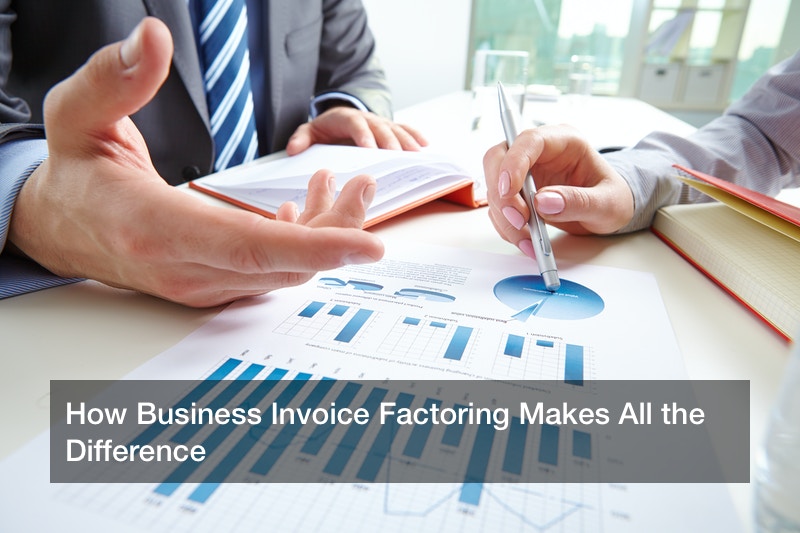There are many different types of businesses across the United States today, and some companies are quite large while others are on the smaller side. In fact, nearly 28 million different small businesses can be found across the nation today, and together, they do most of the work. Businesses, big or small, may be manufacturers or farms, or they may provide services such as hiring agencies or maid services. But produced goods can’t just sit around in a factory or warehouse; they need to move, and this is where carriers, or freight companies, do their work. Carrier companies big and small are hard at work transporting all sorts of goods across the United States. Such companies make their profits from invoices sent to shipper clients, but sometimes, payments come late, and smaller carriers can’t afford to wait too long. Business invoice factoring, meanwhile, is a service that freight broker companies or business factoring services can provide for carriers. Just what exactly is business invoice factoring? Freight capital factoring can greatly help smaller carriers, but how does business invoice factoring work?
Freight Today
One might first consider the freight business across the United States as a whole. Many carrier and freight companies are on the smaller side, and they use the 12 million trucks, locomotive and train cars, and seagoing vessels in the nation to transport all sorts of goods for shipper clients. Some trains may carry grain and produce or meats from farms, or they may carry automobiles and farm equipment. Other carriers may deliver consumer goods for large retailers, or even industrial chemicals or hazardous materials such as natural gas or liquid nitrogen. Trucks in particular are a common way to deliver goods, and this industry employs many Americans. According to data from the Federal Motor Carrier Safety Administration, nearly 5.9 million commercial vehicle drivers are at work across the United States today. These companies make their profits from sending invoices to their clients, and invoice money can pay for the carrier’s own expenses such as fuel, maintenance, crew salaries, and paying off purchased vehicles. But many smaller carriers simply don’t have cash reserves to fall back on while waiting for invoices to arrive. What can be done? Business invoice factoring is often the solution.
On Business Invoice Factoring
A carrier with good business credit can reach out to a number of freight factoring companies nearby to help cover its expenses while waiting for an invoice. A factoring company may be happy to work with a carrier with good credit, and this can be a mutually beneficial partnership.
Working with a business factoring company starts when the carrier sends an invoice to its shipping client. Such invoices may take 60-90 days to be paid, even when they are on time. And late payments are certainly common. A carrier typically can’t afford to wait for that money, so a factoring company steps in as the middle man. The factoring company will assume the rights to collect 100% of the invoice’s value on the carrier’s behalf. In return, the factoring company will lend the carrier a large percentage of the invoice’s value, often 70-80% of it or so, and this can be a lifesaver for a smaller company. The smaller company needs money right away so that it can pay for its many expenses, so this up-front money can really help with that. This sort of loan is why factoring companies like to work with clients who have good business credit.
The next step is when the carrier company’s client pays the invoice value in full. When this happens, the factoring company, as agreed, will collect 100% of it. Once this money arrives, the factoring company will give the client carrier another, smaller percentage of the invoice’s value. This, in addition to the earlier up-front payment, may add up to close to 95-98% of the invoice’s total value. Meanwhile, the factoring company keeps 100% of the invoice value on top of the 2-5%, and this is how the factoring company makes its profit. In short, the carrier gives up a small percentage of the invoice’s value in exchange for the immediacy of the money, and this makes all the difference for paying daily or weekly expenses.





